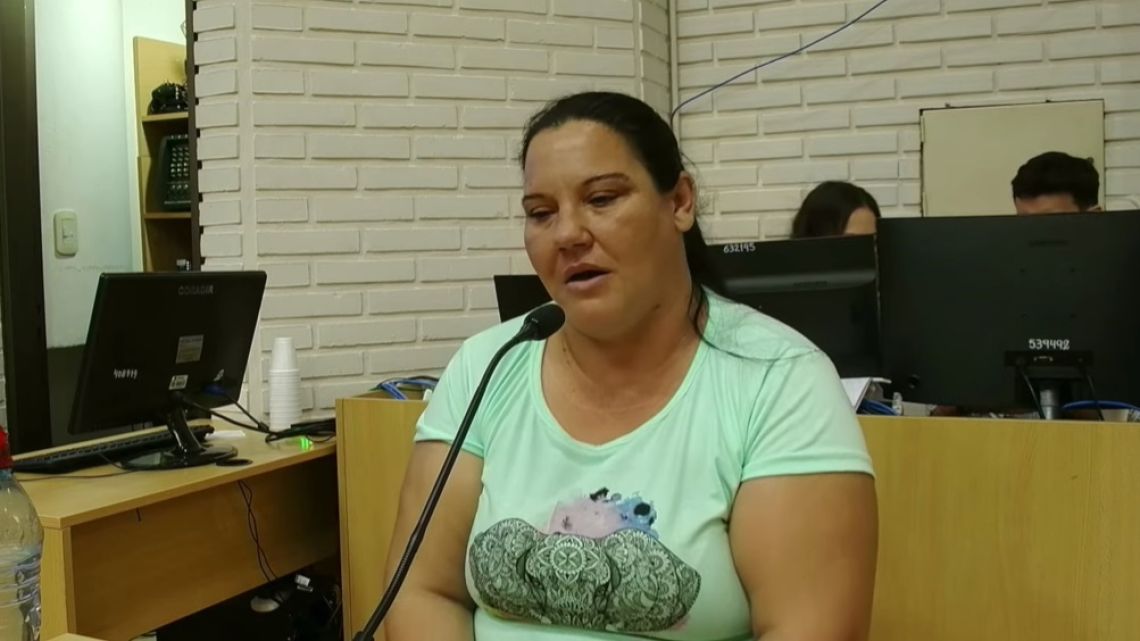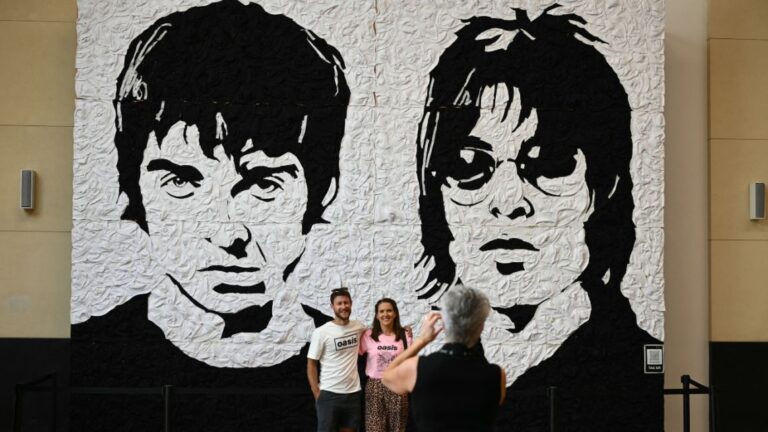
Fabiana González employees and trusted figures in the social movements they led. Emerenciano Senna and Marcela Acuñadeclared before a popular jury at the 12th hearing of the trial. She is charged with aggravated concealment of a woman’s murder. Cecilia Strzyzowski. “They’re accusing me of something I haven’t done,” he said shortly after beginning his presentation.
González spoke about his personal history, his work within the organization and his relationship with the Sena family, especially with Marcela Acuña, to whom he is like a mother. “Marcella was like a mother to me. She meant everything to me,” he said through tears. In her statement, she alternated between technical defense scenes and intimate stories about how her life has changed since her arrest.
“I’ve never cleaned anything. I’m not a cleaner.”
The defendant sought to distance herself from the role prosecutors allegedly ascribed to her in the alleged cover-up. He explained that his job was administrative and logistical related to social movements, and that he never participated in the cleaning or handling of items inside Santa María de Oro’s homes. “I’ve never cleaned anything. I’m not a house cleaning girl.” he repeated before the jury.
Sena landlords deny involvement in cover-up, “Hold the real culprits responsible”
He asserted that he only opens his house when donations arrive or when people remove items, and that it is not part of his job to be aware of the movements of the rest of the group. “I didn’t find any dirt or anything unusual. I just carried out my job and the orders they gave me.” he explained.
In another section, he mentioned his family life. She said her youngest daughter was arrested when she was 2 1/2 years old and now 5 years old, and since then the girl has been living in the care of her younger sister. “I have a teenage daughter and a granddaughter. I want to see them again and go home,” she said, wiping her tears with a handkerchief while looking out at the audience.
prosecutor’s version
For the special prosecutor’s team, González was not just an associate of the movement, but a central figure in the destruction of evidence behind the crime. According to the complaint, the woman received an emergency call from Marcela Acuña on June 2, 2023, shortly after the incident. A security camera recorded her entering her parents’ home at 5:12 p.m.
Prosecutors hypothesized that González would have seen a lump in the house and left in fear. A few days later, from June 3 to June 6, he returned to clean certain areas of the house and supervise the removal of donated beds, mattresses, and other furniture, but Cecilia Strzyzowski’s DNA later tested positive.
‘I did what I normally do that day, so I committed no crime’: Emerenciano Sena denies planning Cecilia’s murder
Prosecutors also highlighted that on June 8, Acuña sent Acuña a message instructing him to coordinate his statements with the other defendants, saying, “Mr. Gustavo and Diana, try to memorize them. I am ceasing your testimony because you are nervous and the timing is confusing.” For the Ministry of Public Security, this evidence proves that it actively participates in the disappearance of significant traces of crime.
In his statement, González sought to show that he relies on Marcela Acuña’s leadership and is a subordinate both emotionally and professionally. Towards the end of the hearing, his tone became firmer. “If someone is guilty, let them pay. But it’s not me,” he stressed.



